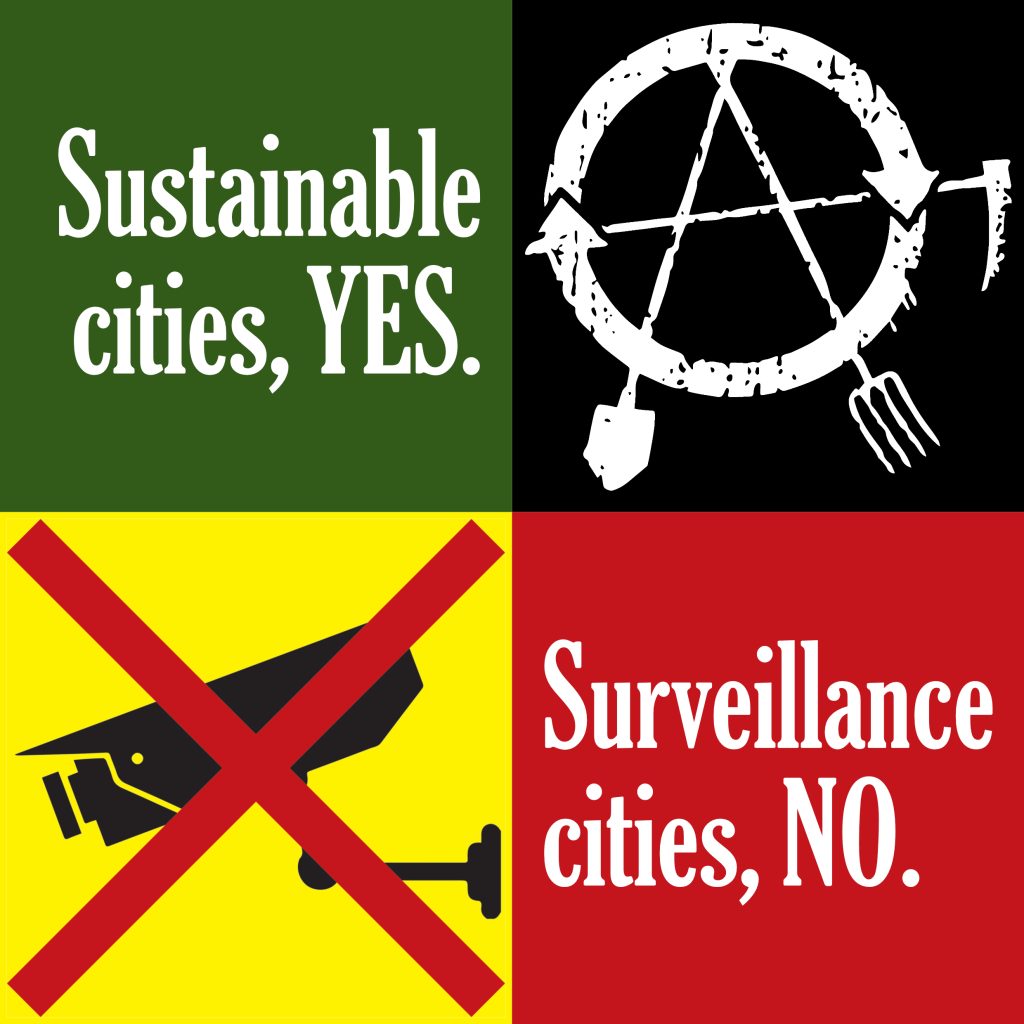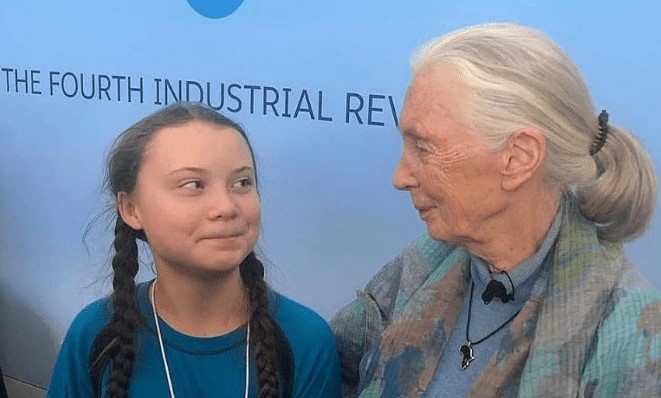
The Stirrer
– – – – – – – – – – – – – – – – – – – – – – – – – – – – – – – – – – – – –
It’s easy to know what you’re against in a dysfunctional, unsustainable and increasingly dystopian world. Railing against the world we have to endure may make you feel better but…does it lead to positive change? We know that the political, economic and social system we inhabit is rapidly heading towards its use by date and that we have to bring about radical change if we’re going to survive. There are many ways of bringing about the change that’s needed. What this project is about is what can be done in the here and now to boost sustainability, community cohesion and neighbourhood resilience in an increasingly volatile world. It’s about building the new world we need and want in the decaying shell of the old one we currently endure.
Above is the mission statement from the Grassroots Alternatives project. It’s been published to put the piece below, which was first published on the Grassroots Alternatives blog, into some kind of context.
– – – – – – – – – – – – – – – – – – – – – – – – – – – – – – – – – – – – –
The Grassroots Alternatives project is under constant review. That’s because we want to make sure, as far as is humanly possible, that what we do goes some way to actually making a difference. That was something we discussed in this post: Priorities… 11.5.23. The upshot of that particular discussion was us shifting the emphasis from distributing propaganda such as our paper to getting stuck into practical projects such as the community vegetable plot in our local park.
What Grassroots Alternatives is about is supporting community projects that make a positive difference to the neighbourhoods where people live. The technical term for this is: Prefigurative action 3.2.22. What that actually means is building the new world we want in the shell of the dysfunctional and increasingly dystopian one we’re currently forced to endure. One example being community food growing projects that give people control over their food supply as opposed to relying on the long, complex and often exploitative supply chains that are a feature of late stage capitalism. What’s interesting about the issue of bringing control over food supply down to the level of the community is that support for this cuts across and beyond political boundaries.
The thing about prefigurative action is that it’s about offering a positive vision of what the future could be. That’s something that seems to be taking a back seat in an age of doom, gloom and fear mongering. There’s only so far environmentalists can go with the gloomy predictions before people start to switch off. It’s not that people don’t care about the future of our society and our planet. When you get into a serious discussion with most people, it soon becomes clear there’s a pervading sense there’s a lot wrong with the world we live in and that something needs to change. The problem is there’s little in the way of positive alternatives being put forward in a way that will capture people’s imaginations.

With Agenda 2030 and the drive to net zero carbon, a growing number of people are coming to resent the top down measures they feel are being imposed to achieve this. One example being the rancorous rows about fifteen minutes cities, Low Traffic Neighbourhoods and Clean Air Zones. Rows that I’ve written about more times than I care to remember, with this being the most recent post on the issues involved: Questions… 16.5.23. After the lockdowns and restrictions that were imposed in 2020 and 2021 to ‘deal with’ Covid, a growing number of people fear that similar restrictions will be imposed in the bid to meet the net zero carbon target. Given the suffering the Covid lockdowns and restrictions caused, rightly or wrongly (depending on your point of view), it’s not surprising that a growing number of people are kicking back against the measures aimed at achieving net zero carbon.
In an ideal world, the fears about the impact of the measures to achieve net zero carbon would be getting heard and addressed in an open and fair way. We live in a far from ideal world. We live in a world where cancel culture increasingly dictates what does and does not get openly and fairly debated. So, we have a situation where anyone questioning the measures being implemented to achieve net zero carbon is instantly dismissed as a ‘conspiracy theorist’ with no attempt being made to address their concerns. Quite often, the term ‘far right’ will be thrown into the mix to make sure there’s absolutely no chance of any meaningful dialogue! This is how we ended up with a ludicrous situation where a protest earlier this year in Oxford organised by a range of groups against the implementation of so called fifteen minute neighbourhoods across the city was counter protested by ‘anti-fascists’: Five arrested as 2,000 attend LTN protest in Oxford 18.2.23.

If the environment movement wants to win hearts and minds, there are ways to achieve that but, there are also ways that will inadvertently achieve the exact opposite! The way legitimate concerns about the how measures to achieve net zero carbon are implemented get routinely dismissed as ‘conspiracy theory’, is an object lesson in precisely how not to win hearts and minds. If the environment movement as it currently stands wants to win hearts and minds, they need to take a few steps back and take a long, hard look at how they get their message across. Because if they continue on their current trajectory, they are going to lose support. I consider myself to be someone concerned about the environment but I cannot go along with the continual doom mongering, the dismissal of legitimate concerns as ‘conspiracy theory’ and the blatant self righteousness that some environmentalists display towards ordinary people struggling to get by.
This is something I wrote a few months ago about the situation we face regarding the tribalism and cancel culture that’s preventing any rational discussion about these concerns:
Carbon and climate change are very polarising issues. That polarisation has gone beyond a robust debate about the facts and theories around the issue to something that’s very tribal. So tribal that any rational discussion becomes ever harder to achieve. Because the issue of carbon and climate change has become so tribal, there’s a real danger that the broader environmental crisis that threatens us all will not get the urgent attention it requires. A crisis that’s a result of a rapacious corporatist system that relies on never ending growth to fuel it. Growth that sees the wealth it creates concentrated in fewer and fewer hands while a growing number of us struggle with austerity, inflation, growing impoverishment and last but by no means least, environmental degradation. Growth which on a finite planet is going to hit the buffers, causing massive destabilisation in the process.
You can read this piece in full here: Time to stop and think? 14.3.23.

If at this point anyone is questioning my environmental credentials and is going to dismiss me as a ‘conspiracy theorist’, this is another piece I wrote a few months ago that I hope will clarify where I’m coming from:
We live in a capitalist economic, political and social system whose basic premise assumes endless growth. It’s a system based on extraction. You cannot have endless economic growth fuelled by extraction on a finite planet. At some point, the contradictions of endless, extractive growth on a finite planet will become too much and the system will start to judder. It could be argued that the growing financial crisis before the Covid crisis was a symptom of the contradictions of an ultimately unsustainable system making themselves felt. It can also be argued that the Covid crisis was leveraged to cool a juddering economy down enough to start to implement plans to essentially ‘reset’ the system. ‘Reset’ in such a way that the material demands of the bulk of the population can be managed downwards while the elites continue to accumulate ever more wealth. But you know, that makes me a ‘conspiracy theorist’…
Living on a finite planet, we do need to have some very deep discussions as to how we adapt to that reality while ensuring we all lead worthwhile and fulfilling lives. The ‘great reset’ or Fourth Industrial Revolution, call it whatever you want, is not the way to a sustainable future that offers all of us a decent life. The fact that we have to argue against what the Fourth Industrial Revolution is doing to us, ostensibly in the name of ‘saving the planet’ while at the same time, fight for a sane, sustainable, fulfilling future that will guarantee our future and that of the planet is immensely frustrating. A system ‘reset’ is needed but it’s one that has to be on our terms.
You can read this piece in full here: The future of movement on a finite planet 21.2.23.

It feels that the environment movement is in grave danger of allowing itself to be used and abused in the name of imposing the ‘great reset’. A ‘reset’ that will subject the vast majority of the population to a very limited life while the elites who presume to rule over us continue to swan around flaunting their wealth. As I’ve mentioned earlier, when you talk to most people, they will tell you that there’s something very ‘off’ about the trajectory society is on. That includes a recognition that in many ways, the environment is under threat. They may not prioritise carbon as an issue but if a motorway is proposed that will slash it’s way through their area, trust me, they will become pretty animated in opposing that. What’s more interesting is that opposition will stretch across and beyond the political spectrum.
When we used to live in Thurrock, we got involved in the fight against the Lower Thames Crossing that National Highways (formerly Highways England) want to build to supposedly ease pressure on the Dartford Crossing further upstream. A few years ago, we attended a packed out public meeting at a cavernous venue at Tilbury Riverside where the vast majority of those attending were strongly opposed to the Lower Thames Crossing. The objectors included a few of the so called ‘usual suspects’ but also many ordinary members of the public and councillors of all political hues, including those from what was then UKIP! Whatever our differences were on other issues, faced with an existential threat to our environment, we pulled together to fight it.
Now, the environment movement has a choice. It’s one between continuing to get sidelined into a political ghetto, or instead, reaching out and appealing to a wider audience. Also, in appealing to that wider audience, to bear in mind the realities most ordinary people have to deal with. That means taking consideration of their hopes and aspirations as well as their concerns. Some of those concerns being about what they fear could be a future of permanent restrictions and ‘lockdown’. This piece offers a suggestion of what could happen if the environment movement decides it does need to re-think how it engages with the public: Can We Reboot the Environmental Movement – So It Protects Freedom, Too? – W. Aaron Vandiver | 11.5.23. Yes, I know that some of our readers may not be happy about the source of that piece. All I ask is that you give it a chance and actually read it before making your mind up about it!

One of the ways in which people feel that society is ‘off’ is an increasing sense of rootlessness and atomisation. That’s something that I hope any environment movement worth its salt would take seriously. This is what I had to write about this and why community and attachment to place and each other are important:
A lot of what Grassroots Alternatives is about is building a sense of community cohesion and solidarity. A key part of that is having a feeling of attachment and connection to where you live. That’s regardless of where people may have originally come from. Having that is the spur to wanting to get involved in community projects to make the town you live in a better place to live. What’s important is that this feeling of attachment and connection apples to the people in your community as well as the location you live in. It’s about building the bonds with each other that will turn to solidarity when the hard times hit, as they inevitably will.
You can read this piece in full here: Attachment and connection 20.11.22.
I realise that this piece will ruffle feathers. I’ve written this out of a realisation that if the environment movement carries on along its current trajectory, we’ll all lose. It comes from a strong belief that an effective movement has to have a sense of place and attachment, and that it has to be built from the grassroots upwards. If it’s seen as something that’s top down, elitist and out of touch with ordinary people, it will ultimately fail. I realise that this piece may well lose Grassroots Alternatives some support. So be it. As the project is always under constant review, we’re prepared to take that risk and adapt how we operate accordingly. Hopefully people will take what’s written in good faith, a constructive discussion can take place and that it will be onwards and upwards from this point.
